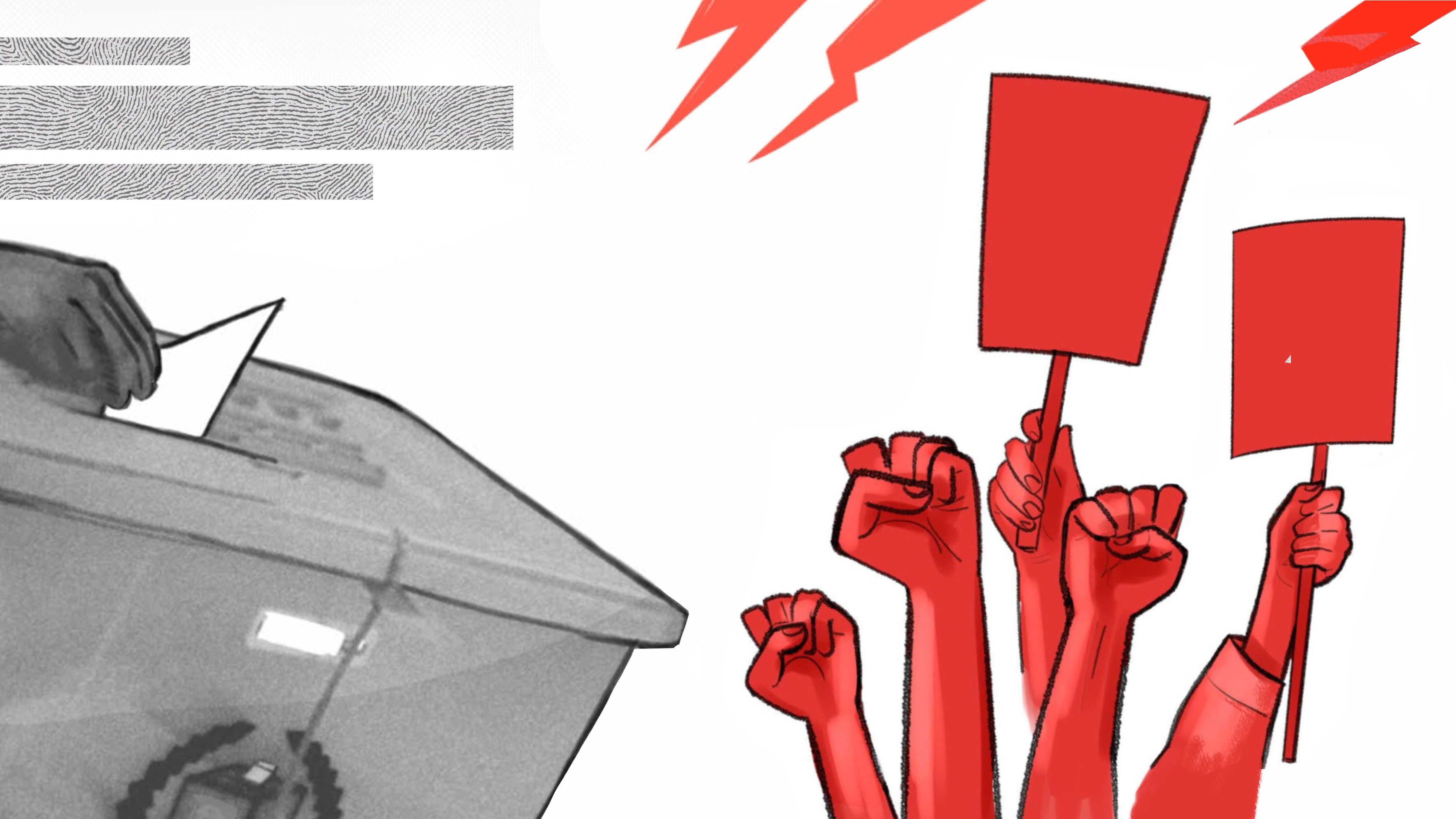The daily dread of protests and gridlock

If Dhaka had a national sport, it wouldn't be cricket—it would be protests. Democracy apparently requires shutting down Mirpur Road on a regular basis. Their cause? Vital. Their timing? Always during peak rush hour.
Every year, like clockwork, the city erupts into a festival of placards, slogans, and strategic hartals—the unofficial tradition of turning roads into human parking lots. This year protests have escalated to another level. You know it's serious when your morning starts with a Traffic Alert group update that goes something like, "Avoid Farmgate, Shahbagh, and basically every other place you need to be today." Simple.
By now, the chaos has become so routine, we could probably set up a Dhaka Protest Traffic Toll Pool. Winner takes home a month's worth of Uber fare, only to be stuck in the centre of the storm of vehicles again, alternating between outrage and apathy.
The inauguration of protests was with the students. When they took to the streets earlier this year, it wasn't about a fancy ideological battle like the Titumir protest (I simply cannot/will not accept that they had to throw stones at a train injuring toddlers just for a university conversion!)—it was about survival. Rising tuition fees, joblessness, quota on the jobs that were available, and that ever-present monster called corruption pushing them over the edge. Armed with nothing but their voices, they blocked roads and demanded justice, fairness, and a future from the crutches of the tyrant toying with it.
Then came the garment workers, fighting for something as basic as a living wage. While we sat comfortably in air-conditioned cars and offices, they were out in the blistering heat, risking everything to demand what should already be theirs. Brands post glossy ads about "ethical fashion," but behind the hashtags lie the women who stitch those clothes while barely earning enough to eat.
And let's not forget the rickshaw-wala-bhaiyas. Their humble three-wheelers were declared enemies of "modernisation" by Dhaka's elite planners. Entire streets banned rickshaws this year, supposedly to ease traffic, as if Dhaka's legendary jams were caused by rickshaws and not the endless SUVs carrying exactly one person to their yoga class. The protests that followed were a masterclass in resilience—rickshaw pullers banded together to protect their livelihoods while the rest of us grumbled about walking to the corner store.
But the pièce de résistance of this year's protest season was, of course, the political rallies blocking the major intersections, featuring enough megaphones to drown out a cyclone. The irony? The rally was about improving public services. Public services that half the city couldn't access that day because no one could actually get anywhere to do their jobs.
And yet, amidst the chaos, there's something oddly inspiring about Dhaka's protest season. It's a reminder that despite everything—despite the smog, the traffic, the endless power struggles—people here refuse to be silenced. Whether it is students demanding jobs, workers fighting for dignity, or citizens simply saying, "We've had enough," Dhaka's streets remain a stage for resistance.
There is something oddly unifying about these disruptions. Imagine this: you're crammed into a bus that hasn't moved in 30 minutes. The conductor is yelling about change, and someone's armpit is dangerously close to your face. But then, a stranger catches your eye, shrugs, and says, "Shob politics-er khela." Suddenly, you're comrades in misery, bonded by your mutual disdain for both traffic and politicians.
But let's not romanticise it too much. Protesting in Dhaka is a privilege not everyone can afford. The most vulnerable—domestic workers, day labourers, and rural migrants—often don't have the time or resources to join the fight. For them, survival takes precedence over slogans, and their struggles remain invisible in a city that thrives on spectacle.
Will this year's protests lead to meaningful change, or will they be another chapter in Dhaka's endless cycle of barbarity and inaction? It's hard to say. But one thing is for sure: as long as there's inequality, injustice, and a city full of people with nothing left to lose, Dhaka's protest season will return.
So, where does this leave us? Stuck in traffic, mostly. But maybe, just maybe, it's time we stopped rolling our eyes at the disruptions and started thinking about why they're happening. Because if a two-hour delay is what it takes to make us pay attention, then perhaps it's not the protesters who are the problem—it's the rest of us who've grown too comfortable ignoring the noise.
While my readers ponder these existential questions, I'll be here, sipping my tea and trying to decide whether I should join the next rally or just complain about it on Facebook like all my relatives. Cheers to living in a city that never stops fighting—even if it sometimes feels like we're all just shouting into the smog.
Barrister Noshin Nawal is a member of the editorial team at The Daily Star and an environmental activist.
Views expressed in this article are the author's own.
Follow The Daily Star Opinion on Facebook for the latest opinions, commentaries and analyses by experts and professionals. To contribute your article or letter to The Daily Star Opinion, see our guidelines for submission.




 For all latest news, follow The Daily Star's Google News channel.
For all latest news, follow The Daily Star's Google News channel. 

Comments